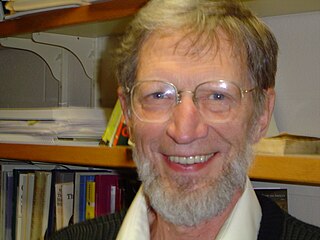
Epistemology is the branch of philosophy concerned with knowledge. Epistemologists study the nature, origin, and scope of knowledge, epistemic justification, the rationality of belief, and various related issues. Debates in (contemporary) epistemology are generally clustered around four core areas:
- The philosophical analysis of the nature of knowledge and the conditions required for a belief to constitute knowledge, such as truth and justification
- Potential sources of knowledge and justified belief, such as perception, reason, memory, and testimony
- The structure of a body of knowledge or justified belief, including whether all justified beliefs must be derived from justified foundational beliefs or whether justification requires only a coherent set of beliefs
- Philosophical skepticism, which questions the possibility of knowledge, and related problems, such as whether skepticism poses a threat to our ordinary knowledge claims and whether it is possible to refute skeptical arguments
Justification is the property of belief that qualifies it as knowledge rather than mere opinion. Epistemology is the study of reasons that someone holds a rationally admissible belief. Epistemologists are concerned with various epistemic features of belief, which include the ideas of warrant, knowledge, rationality, and probability, among others.

William Payne Alston was an American philosopher. He is widely considered to be one of the most important epistemologists and philosophers of religion of the twentieth century, and is also known for his work in metaphysics and the philosophy of language. His views on foundationalism, internalism and externalism, speech acts, and the epistemic value of mystical experience, among many other topics, have been very influential. He earned his PhD from the University of Chicago and taught at the University of Michigan, Rutgers University, University of Illinois, and Syracuse University.

Alvin Carl Plantinga is an American analytic philosopher who works primarily in the fields of philosophy of religion, epistemology, and logic.
Philosophical skepticism is a family of philosophical views that question the possibility of knowledge. It differs from other forms of skepticism in that it even rejects very plausible knowledge claims that belong to basic common sense. Philosophical skeptics are often classified into two general categories: Those who deny all possibility of knowledge, and those who advocate for the suspension of judgment due to the inadequacy of evidence. This distinction is modeled after the differences between the Academic skeptics and the Pyrrhonian skeptics in ancient Greek philosophy. In the latter sense, skepticism is understood as a way of life that helps the practitioner achieve inner peace. Some types of philosophical skepticism reject all forms of knowledge while others limit this rejection to certain fields, for example, to knowledge about moral doctrines or about the external world. Some theorists criticize philosophical skepticism based on the claim that it is a self-refuting idea since its proponents seem to claim to know that there is no knowledge. Other objections focus on its implausibility and distance from regular life.
Crispin James Garth Wright is a British philosopher, who has written on neo-Fregean (neo-logicist) philosophy of mathematics, Wittgenstein's later philosophy, and on issues related to truth, realism, cognitivism, skepticism, knowledge, and objectivity. He is Professor of Philosophical Research at the University of Stirling, and taught previously at the University of St Andrews, University of Aberdeen, New York University, Princeton University and University of Michigan.
Contextualism, also known as epistemic contextualism, is a family of views in philosophy which emphasize the context in which an action, utterance, or expression occurs. Proponents of contextualism argue that, in some important respect, the action, utterance, or expression can only be understood relative to that context. Contextualist views hold that philosophically controversial concepts, such as "meaning P", "knowing that P", "having a reason to A", and possibly even "being true" or "being right" only have meaning relative to a specified context. Other philosophers contend that context-dependence leads to complete relativism.

Virtue epistemology is a current philosophical approach to epistemology that stresses the importance of intellectual and specifically epistemic virtues. Virtue epistemology evaluates knowledge according to the properties of the persons who hold beliefs in addition to or instead of the properties of the propositions and beliefs. Some advocates of virtue epistemology also adhere to theories of virtue ethics, while others see only loose analogy between virtue in ethics and virtue in epistemology.
Laurence BonJour is an American philosopher and Emeritus of Philosophy at the University of Washington.
Keith Lehrer is Emeritus Regent's Professor of philosophy at the University of Arizona and a research professor of philosophy at the University of Miami, where he spends half of each academic year.

Philosophy is the study of general and fundamental problems concerning matters such as existence, knowledge, values, reason, mind, and language. It is distinguished from other ways of addressing fundamental questions by being critical and generally systematic and by its reliance on rational argument. It involves logical analysis of language and clarification of the meaning of words and concepts.
Metaepistemology is the branch of epistemology and metaphilosophy that studies the underlying assumptions made in debates in epistemology, including those concerning the existence and authority of epistemic facts and reasons, the nature and aim of epistemology, and the methodology of epistemology.
Michael Williams is a British philosopher who is currently Krieger-Eisenhower Professor in the Department of Philosophy at Johns Hopkins University, noted especially for his work in epistemology.
The following outline is provided as an overview of and topical guide to epistemology:

Mylan Engel Jr. is a full professor of philosophy at Northern Illinois University in DeKalb.
John Patrick Hawthorne is an English philosopher, currently serving as Professor of Philosophy at the Australian Catholic University in Melbourne, and Professor of Philosophy at the University of Southern California. He is recognized as a leading contemporary contributor to metaphysics and epistemology.

Peter Lipton was the Hans Rausing Professor and Head of the Department of History and Philosophy of Science at Cambridge University, and a fellow of King's College, until his unexpected death in November 2007. According to his obituary on the Cambridge web site, he was "recognized as one of the leading philosophers of science and epistemologists in the world."
Epistemology or theory of knowledge is the branch of philosophy concerned with the nature and scope (limitations) of knowledge. It addresses the questions "What is knowledge?", "How is knowledge acquired?", "What do people know?", "How do we know what we know?", and "Why do we know what we know?". Much of the debate in this field has focused on analyzing the nature of knowledge and how it relates to similar notions such as truth, belief, and justification. It also deals with the means of production of knowledge, as well as skepticism about different knowledge claims.
Anjan Chakravartty is an analytic philosopher and the Appignani Foundation Professor at the University of Miami. Previously, he was a professor of philosophy at the University of Notre Dame and the University of Toronto. His work focuses on topics in the philosophy of science, metaphysics, and epistemology.
Jennifer Nagel is a Canadian philosopher at the University of Toronto. Her research focuses on epistemology, philosophy of mind, and metacognition. She has also written on 17th century (Western) philosophy, especially John Locke and René Descartes.






